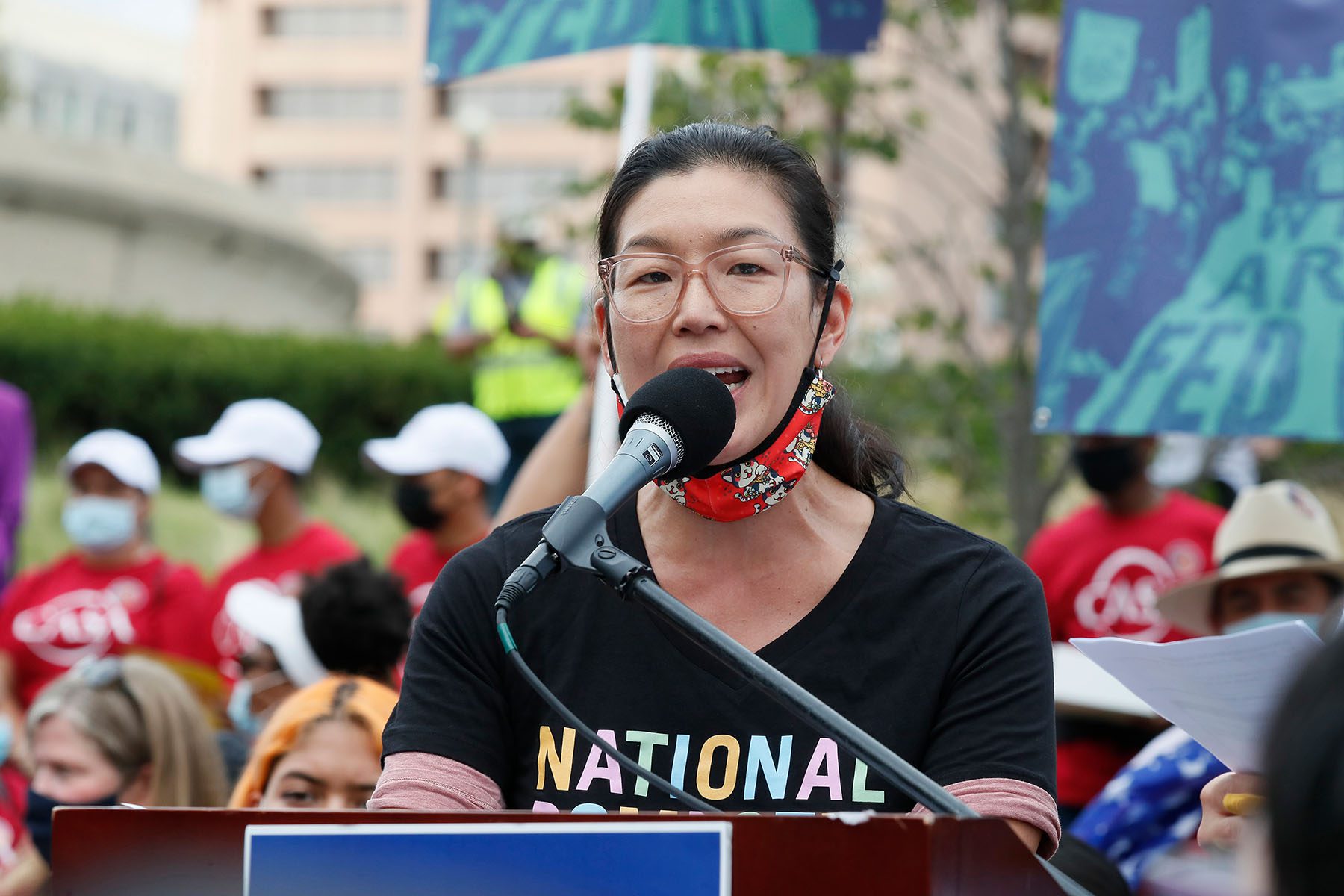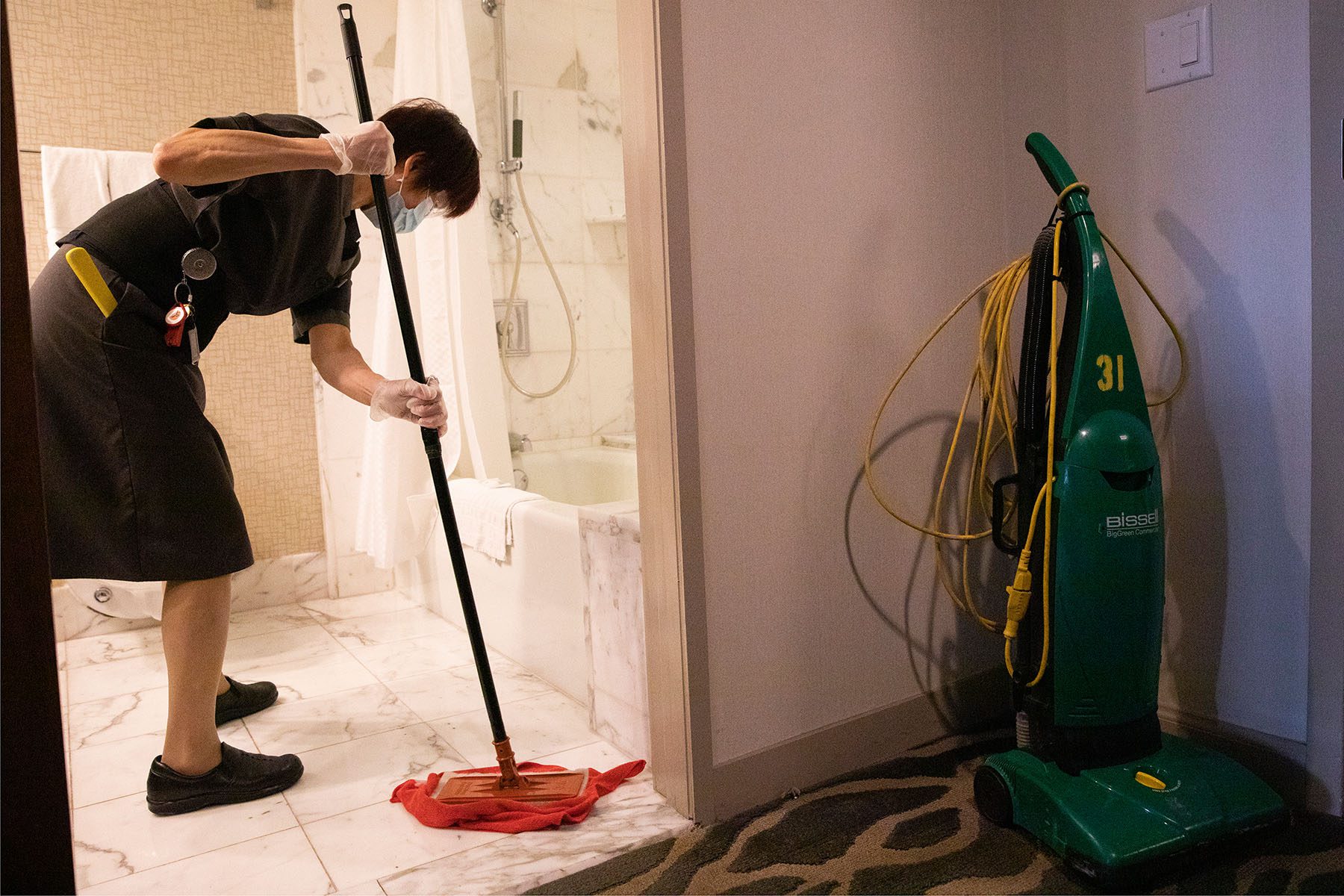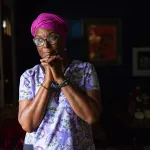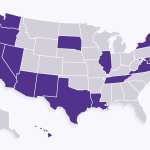Over Labor Day weekend, President Joe Biden addressed steelworkers at a rally in Milwaukee. He lauded American laborers, including “electricians, ironworkers, letter carriers, Teamsters, laborers, brick layers transit workers, plumbers, pipefitters, steelworkers.”
Not in the president’s mentions: America’s 2.2 million domestic workers, who include house cleaners, home care workers and nannies, among others. These workers, mostly women, disproportionately immigrants and women of color, have long been left out of conversations about labor and the legal protections afforded to other workers.
Domestic workers and other labor advocates are pushing to change that through a measure known as the Domestic Workers Bill of Rights Act. It would extend protections currently enjoyed by most workers in America, including against workplace sexual harassment, to domestic workers. Their exclusion from these civil rights protections stem from the country’s legacy of racism and the fact that most are in workplaces of one, working independently or through an agency.
Ten states have passed Domestic Workers Bill of Rights legislation, but there is currently no similar legislation at the federal level. The Domestic Workers Bill of Rights Act was first introduced in 2019, but it was never referred to committee. The bill was reintroduced in 2021 by Democrats Rep. Pramila Jayapal in the House. Sens. Kristen Gillibrand and Ben Ray Luján did the same in their chamber. The House Education and Labor Committee held a hearing about the bill in July, about a year after the bill was introduced.
Ai-jen Poo, president of the National Domestic Workers Alliance, pointed out to The 19th that the American workforce today is different from a century ago. “Since Labor Day was established, who we think of as working class and who workers are has really changed. At one point, our image of a working-class hero might have been as a factory worker or a mine worker. But I think in the 21st century, the Labor Day hero is a she-ro in the care sector,” Poo said.
The people who do that work also have special concerns because of how their employment is structured, Poo said. Domestic workers are often the only employees in their workplaces, making organizing more difficult. She described the current labor situation for domestic workers as a “free-for-all.”
“You might find a family to work for who respect you and treat you as a professional, give you paid sick days and vacation time. But then there’s the other end of the spectrum, where there’s cases of human trafficking and sexual assault and harassment. There’s no guidelines, no standards,” she told The 19th. Language in the proposed measure would extend protections around issues like wages, being paid in full and on time, and harassment to all workplaces, not just workplaces with at least fifteen employees.
That’s why she and other advocates have pushed for legislative action.
“The federal Domestic Workers Bill of Rights would establish fair and equal protections for the domestic workforce and account for the specific challenges workers face,” Poo said.
According to Eileen Boris, a historian and professor of feminist studies at University of California Santa Barbara, this change has been a long time coming, and the lag has to do with the origins of how these workers’ jobs are perceived.
“Care workers and other domestic workers had been excluded up until the Obama administration from the Fair Labor Standards Act,” Boris said, referring to a 1938 law that she called the “gold standard” of labor regulation. The law was the first to set a federal minimum wage, among other protections.

The reason for this exclusion, as well as the exclusion from other labor protections, is the legacy of slavery, according to Boris.
“The Fair Labor Standards Act was passed as part of the second New Deal. It had major exclusions, as did other New Deal measures. Why? Because the Democratic Party at that time was a coalition that relied on the South. White Southern legislators did not want to pay their maids the same, equal wages as other workers,” Boris said.
According to Poo, “that legacy has defined the conditions for domestic workers. It’s always been treated as less than real work, always excluded from the basic protections that other workers take for granted.”
Boris told The 19th that the legacy of slavery also feeds into sexual harassment and domestic workers’ fight against it. Historically, because of the lack of labor protections, women have fought back by quitting. This was, of course, not an option for enslaved women.
“Enslaved women found themselves subjected to sexual coercion. And the labor takes place in the private home, so there’s this idea that what happens in the home stays in the home,” Boris said.
It is difficult to know how widespread sexual harassment of domestic workers is, as there is no federal recording or registry of official data. A 2021 poll from the National Domestic Workers Alliance found that a quarter of domestic workers reported feeling unsafe in their workplaces.
“Right now, federal anti-harassment protections require workplaces to have a certain number of employees to be covered,” Poo said. But the majority of domestic workers are in workplaces of one.
“[The Domestic Workers Bill of Rights] would change the threshold, so any workplace with one employee or more would be covered by anti-harassment and anti-discrimination protection,” Poo said.
That could give greater legal recourse to people like June Barrett, a “proud, queer Jamaican immigrant” and a domestic worker. They have worked in people’s homes for over two decades, as both a nanny and as a home care worker. They have also been personally impacted by the lack of protections available to domestic workers.
While working as a live-in home care worker for an older man, they were sexually harassed, repeatedly. On the first night working with him, the man asked Barrett to get into bed with him.
“He said all of the other girls slept in the bed with him. I couldn’t believe it. I told him it’s not professional,” Barrett told The 19th.
Barrett also described multiple situations in which the man grabbed their breasts. Beyond the violation itself, Barrett was frustrated by the seeming lack of concern for their wellbeing and the wellbeing of their colleagues from employers – Both agencies and families.
“The family knows it’s happening. The agency knows it’s happening. They send woman after woman after woman, and nobody gives a damn. They just change out the woman,” they told The 19th.
Barrett says disrespect is endemic to the profession.
“I’m still referred to as ‘the girl.’ I’m almost 60 years old. But I don’t get angry or do sloppy care. I still put empathy and compassion in my work. I’m a professional,” Barrett said.
Barrett described national Domestic Workers Bill of Rights legislation as necessary and long overdue.
“We are workers just like anybody else. We should get the same protections. Domestic workers are the fabric, the thread that weaves society together. We do real work,” Barrett told The 19th.







